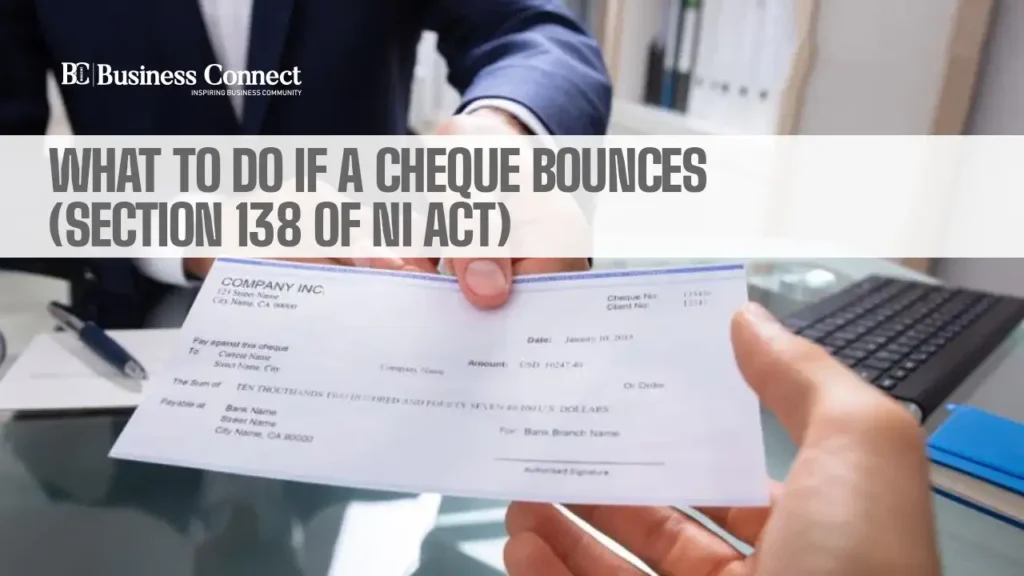What to Do If a Cheque Bounces (Section 138 of NI Act)
By Fathom Legal Advocates and Corporate Consultants
Receiving a bounced cheque can be frustrating and financially damaging, especially when payments are crucial for your business or personal obligations. In India, cheque bounce is a criminal offense under the Negotiable Instruments Act, 1881, and victims have the right to initiate legal action under Section 138 of the Act.
Here’s what to do step-by-step if a cheque issued to you has bounced.
- Understand What Constitutes a Cheque Bounce Offense A cheque is considered bounced or dishonoured if:
- It is returned by the bank due to insufficient funds, account closed, or signature mismatch
- The cheque was issued towards a legally enforceable debt or liability
- The cheque was presented within 3 months from the date mentioned on it
If these conditions are met, Section 138 NI Act is applicable.
- Step 1: Get a Return Memo from Your Bank When the cheque is dishonoured, your bank will provide a Cheque Return Memo stating the reason for non-clearance. This document is essential for further legal proceedings.
- Step 2: Send a Legal Notice Within 30 Days As per the Act:
- You must send a demand notice to the cheque issuer within 30 days of receiving the return memo
- The notice must demand the cheque amount and give 15 days to pay
This legal notice must:
- Be sent by registered post or courier
- Include cheque details, return memo, and reason for demand
- Be drafted by a lawyer for proper language and legal weight
- Step 3: File a Complaint in Court if No Payment Is Made If the drawer fails to pay within 15 days of receiving your legal notice, you can:
- File a criminal complaint under Section 138 before a Judicial Magistrate within 30 days from the end of notice period
- Submit the original cheque, return memo, copy of notice, postal receipt, and an affidavit
The court may summon the accused and initiate trial. If proven guilty, the punishment can be:
- Imprisonment up to 2 years, or
- Fine up to twice the cheque amount, or both
- Jurisdiction for Filing the Case After a 2015 Supreme Court ruling, the complaint must be filed in the court located where the payee’s bank branch is situated (i.e., where the cheque was deposited).
- Can You Simultaneously File a Civil Case? Yes. Along with the criminal complaint, you can also:
- File a civil suit for recovery of the cheque amount with interest
- Use the dishonour as evidence of non-payment
- Common Defenses by the Drawer The accused may claim:
- No legal liability existed
- Cheque was stolen or issued as security
- Notice was not properly served
Proper documentation and prompt action can defeat most of these defenses.
- Best Practices to Avoid Disputes
- Always mention purpose of payment on the cheque (if applicable)
- Retain photocopy and proof of delivery
- Record communication and transactions related to the cheque
Conclusion – Dealing with a bounced cheque requires prompt and well-documented legal action. The law under Section 138 of the Negotiable Instruments Act provides a clear process to help you recover your dues, starting with a legal notice and, if necessary, proceeding to court. Timely action, proper documentation, and professional legal support can significantly improve your chances of a successful outcome. Being aware of your rights helps protect your financial interests and discourages future defaults.



